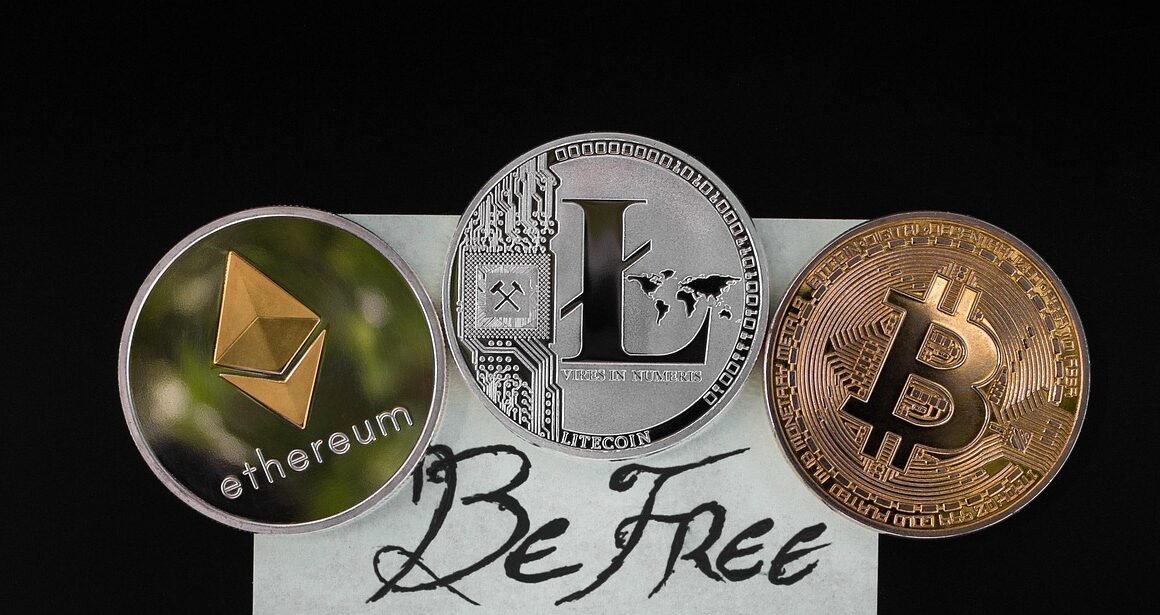Cryptocurrency has revolutionized the financial landscape, offering new avenues for investment, transactions, and financial autonomy. At the heart of this digital revolution lies the crypto wallet – your gateway to the decentralized world of Bitcoin, Ethereum, and other digital assets. Choosing the right crypto wallet is crucial for securing your digital assets and navigating the complex world of blockchain. This guide provides a comprehensive overview of crypto wallets, helping you understand their types, security features, and how to select the best option for your needs.
What is a Crypto Wallet?
Understanding the Basics
A crypto wallet doesn’t actually hold your cryptocurrencies in the traditional sense. Instead, it stores the private keys necessary to access and manage your digital assets on the blockchain. Think of it like your house key: it doesn’t contain the house itself, but it allows you to unlock and access it.
- Private Key: A secret code that allows you to authorize transactions and control your cryptocurrency. Keep your private key safe and never share it with anyone.
- Public Key: Derived from the private key, this is used as your wallet address to receive cryptocurrencies. It’s safe to share your public key.
- Blockchain: A decentralized and distributed ledger that records all cryptocurrency transactions. Your wallet interacts with the blockchain to manage your assets.
Why You Need a Crypto Wallet
Having a crypto wallet is essential for anyone looking to engage with cryptocurrencies. Here’s why:
- Secure Storage: Protects your digital assets from unauthorized access.
- Transaction Management: Allows you to send and receive cryptocurrencies.
- Control: Gives you complete control over your funds, unlike centralized exchanges.
- Access to DeFi: Enables participation in decentralized finance (DeFi) applications.
Types of Crypto Wallets
Crypto wallets come in various forms, each offering different levels of security, convenience, and accessibility. Understanding these differences is crucial for choosing the right wallet for your needs.
Hardware Wallets
- Description: Physical devices that store your private keys offline, providing the highest level of security.
- Examples: Ledger Nano X, Trezor Model T
- Pros:
Highly secure against hacking and malware.
Private keys never exposed to the internet.
Ideal for long-term storage of large amounts of cryptocurrency.
- Cons:
Less convenient for frequent transactions.
Require a physical device that can be lost or damaged.
Generally more expensive than other wallet types.
- Practical Tip: Always purchase hardware wallets directly from the manufacturer to avoid tampered devices.
Software Wallets
Software wallets are applications installed on your computer or mobile device. They offer more convenience but are generally less secure than hardware wallets.
#### Desktop Wallets
- Description: Installed on your computer and offer a balance of security and convenience.
- Examples: Electrum, Exodus
- Pros:
Easy to use and access.
More secure than web wallets.
- Cons:
Vulnerable to malware if your computer is compromised.
Require regular updates to maintain security.
#### Mobile Wallets
- Description: Designed for smartphones and offer the convenience of accessing your crypto on the go.
- Examples: Trust Wallet, Coinbase Wallet
- Pros:
Convenient for everyday transactions.
Easy to set up and use.
- Cons:
Vulnerable to theft or loss of your phone.
Less secure than hardware wallets or desktop wallets.
- Practical Tip: Enable two-factor authentication (2FA) and set up a strong PIN or biometric authentication for your mobile wallet.
#### Web Wallets
- Description: Accessed through a web browser and store your private keys online.
- Examples: MetaMask, MyEtherWallet
- Pros:
Easy to access from any device with an internet connection.
Often integrated with decentralized applications (dApps).
- Cons:
Least secure type of wallet due to online storage of private keys.
Prone to phishing attacks and hacking.
- Practical Tip: Use a strong, unique password and enable 2FA. Be cautious of phishing links.
Paper Wallets
- Description: A physical printout of your public and private keys.
- Pros:
Offline storage makes them immune to hacking.
Free to create.
- Cons:
Susceptible to physical damage or loss.
Difficult to use for frequent transactions.
- Practical Tip: Store your paper wallet in a safe, secure location and make multiple copies.
Security Best Practices for Crypto Wallets
Securing your crypto wallet is paramount. Following these best practices can significantly reduce the risk of losing your digital assets.
Protecting Your Private Keys
- Never share your private key with anyone.
- Store your private keys offline whenever possible.
- Use strong, unique passwords for all your accounts.
- Enable two-factor authentication (2FA) on all your wallets and exchanges.
- Be cautious of phishing scams and never click on suspicious links.
Backup and Recovery
- Create a backup of your wallet’s seed phrase or recovery phrase. This is usually a 12-24 word phrase.
- Store your backup in a safe, secure location, separate from your wallet.
- Test your recovery process to ensure you can restore your wallet if needed.
- Consider using a multi-signature (multi-sig) wallet, which requires multiple approvals for transactions, adding an extra layer of security.
Staying Informed
- Keep your wallet software up to date to patch security vulnerabilities.
- Stay informed about the latest security threats and scams in the crypto space.
- Use reputable and well-established wallet providers.
- Diversify your cryptocurrency holdings across multiple wallets to minimize risk.
Choosing the Right Crypto Wallet for You
Selecting the best crypto wallet depends on your individual needs and priorities.
Factors to Consider
- Security: How important is security to you? Hardware wallets offer the highest level of security.
- Convenience: How often do you plan to use your wallet? Mobile wallets are best for frequent transactions.
- Ease of Use: How comfortable are you with technology? Some wallets are more user-friendly than others.
- Supported Cryptocurrencies: Does the wallet support the cryptocurrencies you want to store?
- Cost: Hardware wallets typically require a purchase, while software wallets are often free.
Example Scenarios
- Hodler (Long-Term Investor): A hardware wallet like Ledger Nano X or Trezor Model T is ideal for secure, long-term storage.
- Trader (Frequent Transactions): A mobile wallet like Trust Wallet or a desktop wallet like Exodus offers convenience and accessibility.
- DeFi User: A web wallet like MetaMask is necessary to interact with decentralized applications.
Practical Steps to Choose
Conclusion
Choosing the right crypto wallet is a critical step in securing your digital assets and participating in the cryptocurrency ecosystem. By understanding the different types of wallets, security best practices, and factors to consider, you can make an informed decision that aligns with your needs and risk tolerance. Whether you’re a long-term investor, a frequent trader, or a DeFi enthusiast, the right crypto wallet can empower you to navigate the world of digital finance with confidence. Remember to always prioritize security and stay informed about the latest developments in the crypto space to protect your investments.



